Steven Hoffman: Innovation is the only way to become a “unicorn”
In the book A Brief History of Humankind, the Israeli writer Yuval Noah Harari mentioned that the greatest secret of the progress of human civilization in the past 70,000 years is the “cognitive revolution”. In the cognitive process, we need to constantly enhance the understanding of innovation. For entrepreneurs, once they stop innovating, entrepreneurs will lose the growth engine. In the Internet age, only innovation can survive for a long time!
In the era of super-chain of all things, new growth momentum is accelerating in the formation of new industries, new technologies and new consumption patterns. Innovative entrepreneurs have ushered in a new mode of sharing and symbiosis in the integration of global industries. Consumer Electronics Magazine interviewed Steven Hoffman, the founder of Founders Space, the No. 1 business incubator in Forbes magazine. He was the first venturer to bring Silicon Valley experience to all parts of China. He was a heavyweight business Godfather and angel investor in Silicon Valley. Founders Space’s slogan is “Looking forward to helping start-ups change the world and experience a great journey together”. In his exclusive interview, Hoffman also expressed his views on the current hot topics such as artificial intelligence, 5G era and the 996 working system, and put forward many forward-looking views. Let’s meet the godfather of innovation and entrepreneurship in Silicon Valley.
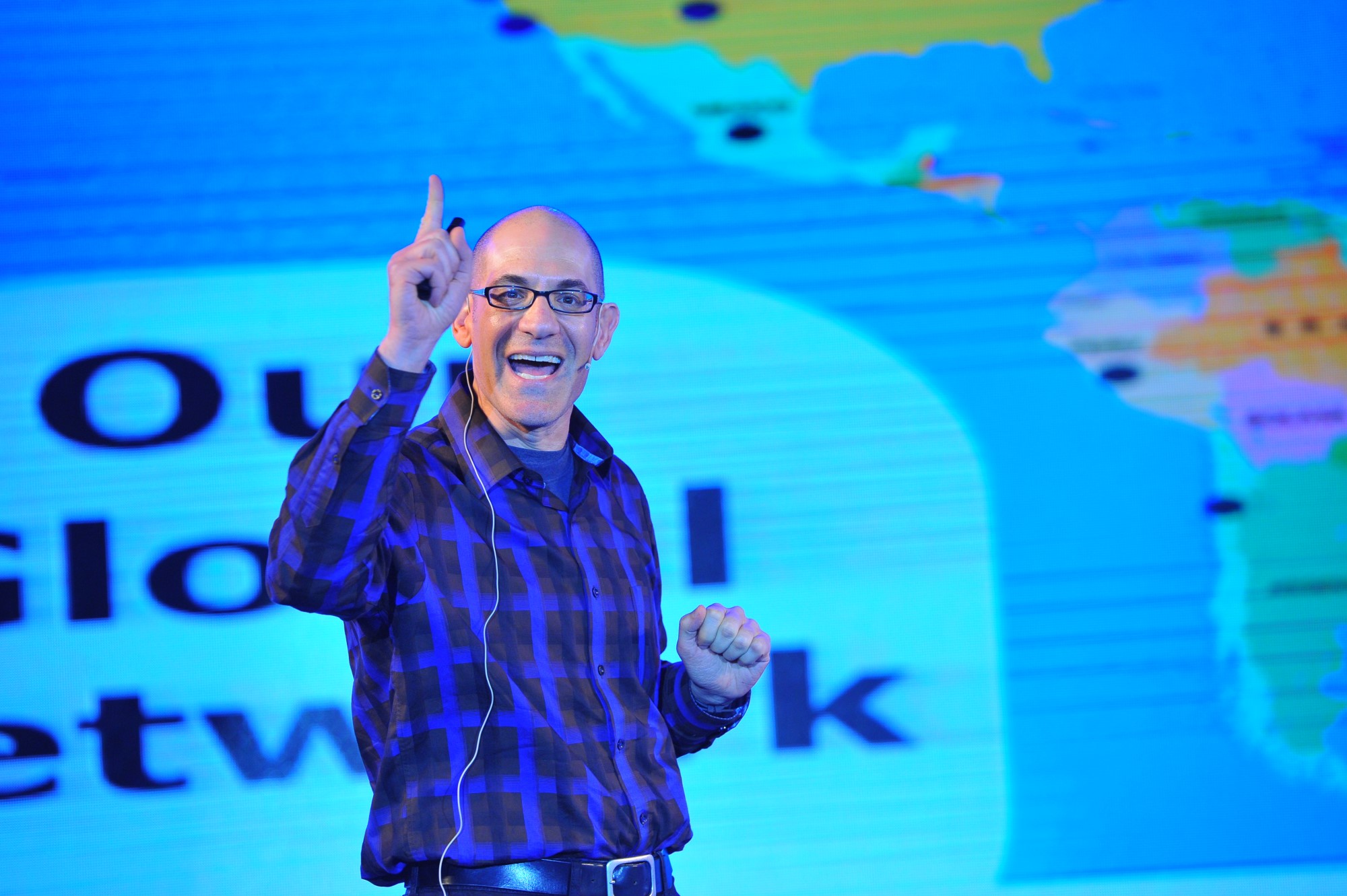
Q1: You have contacted different entrepreneurship teams between China and U.S.A.
In your opinion, what are the essential differences between the entrepreneurship teams and the entrepreneurship environment between China and the United States?
Chinese entrepreneurs tend to move really fast. They are excellent at execution. US teams tend to move more slowly at the start. They spend more time exploring various possibilities. This is because Americans are encouraged to follow their own path, while Chinese are more focused on being part of a group. It’s a cultural difference. This is why when a Chinese team sets a direction, everyone works together to make it happen. But in the US, everyone has their own idea of what direction to take. This can slow things down, but it also opens up the process to new ideas and innovations.
Which industry have great difference in Entrepreneurship between China and the United States? What is the impact of these differences?
Thanks to government support, China is taking a lead in clean energy, while the US is falling behind in this area. China is also making big strides in the areas of biotech, especially with gene editing. China is catching up to the US in this field thanks to looser regulations and generous funding. In AI, both countries are making big leaps forward. The US is still ahead in the hard sciences and deep research, but China is making progress in these areas. This can be very good for the world. It can make a huge impact. We have so many problems that need to be solved, from pollution and climate change to poverty, education, and natural disasters. Technology can be applied to all of these, and it’s now up to the US and China to lead the way.
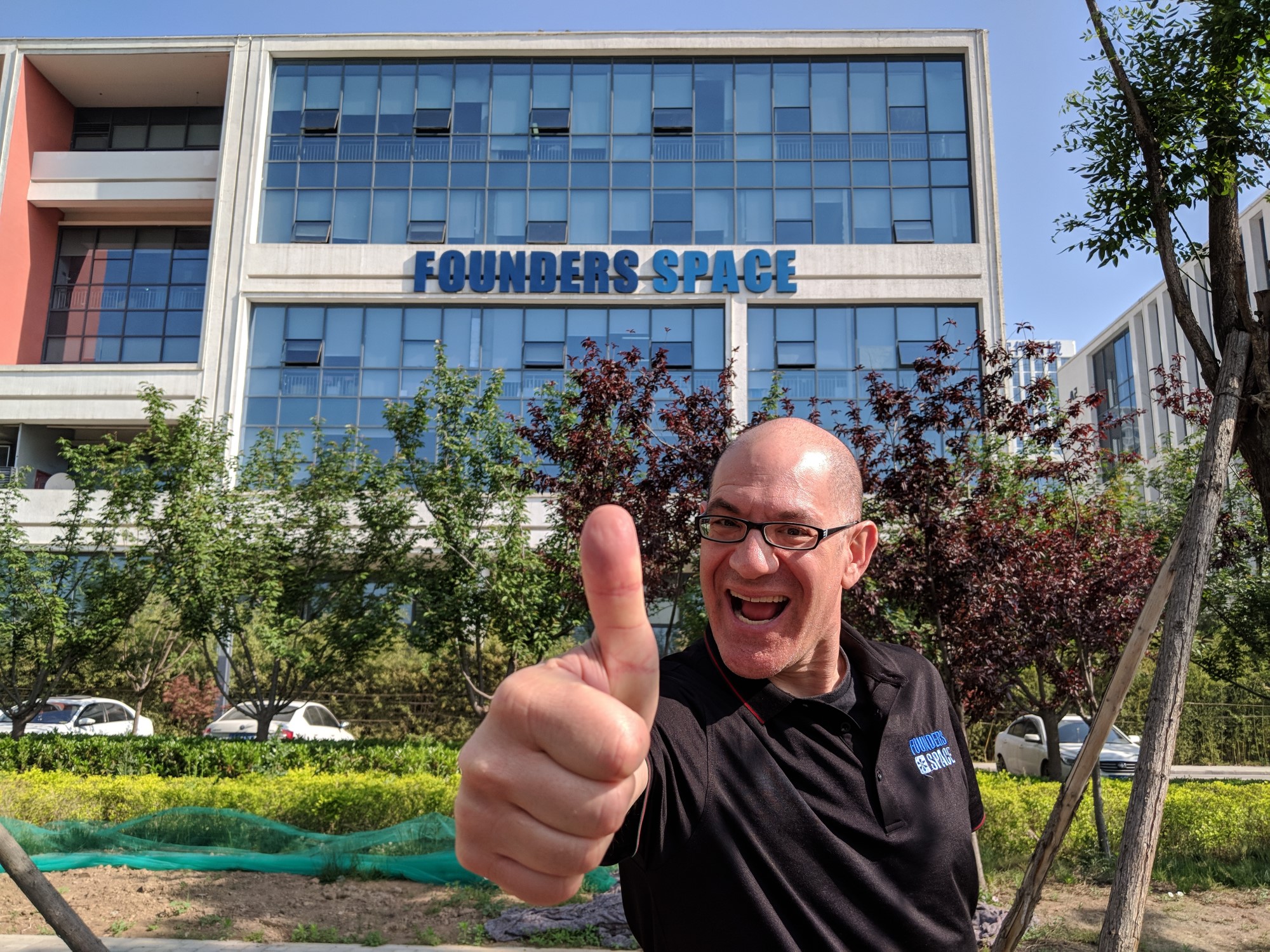
Q2: In the past two years, you have talked a lot about AI. So in your opinion, AI will create which kind of interesting and achievable projects ?
AI is making everything smarter. There is no industry on the planet that won’t be affected. AI will change our lives in incalculable ways. In the next ten years, we’ll have most of our packages delivered by smart robots. We won’t order the products because AI will do it for us. The algorithm will predict what we need and when we need it. When the package arrives, we can either accept or reject it. When we go out to eat, we’ll let AI determined the best restaurant and guide us there. At work, AI will plan out our schedule, participate in our meetings, assist us in our jobs, and even hire and fire us. There is no part of our life that AI won’t touch. We may even consult AI to decide whom we should date and eventually marry. It will be a crazy world!
How far away is it that the robots will become ubiquitous and robots serve humans thoroughly?
Robots are already serving us. Think of semi-autonomous cars, smart vacuums, assembly line robots, warehouse robots, weed killing robots, AI-guided drones, and our smart phones. In ten years, robots will be everywhere. They’ll be making our products, cooking our meals, washing our dishes, giving us massages, mowing our lawns, taking care of our elderly, and running our errands. At some point, we may even choose a robot as a companion. After all, robots won’t annoy us like real people. They will make the perfect husband or wife. If you think I’m joking, just look at the human-like robots that Professor Isghiguro is developing at Osaka University. Soon they will be a point where we won’t be able to distinguish them from real people across the room. In 10 years, we may not be able to tell if someone walking down the street is human or machine. Boston Dynamics is set to release Spot, it’s first consumer robot. It has four legs, like a dog, and will be able to do a huge variety of tasks, especially with modifications from developers. We’re nearing the tipping point right now. Just wait and see!
Q3: For entrepreneurs ,from starting a company to maintaining its continuous operation,what is the most important and necessary quality?
The single most important quality is persistence. If you don’t give up, you can never fail. This doesn’t mean you keep doing something if it’s not working. Smart entrepreneurs quit all the time. Quitting doesn’t mean giving up. It just means changing directions. If you keep trying new things and learning from your mistakes, eventually, you’ll figure it out–as long as you’re doggedly persistent. Leadership is the other essential quality. You have to be able to organize and direct people. If you can’t do this, you cannot grow a company. Other great qualities include a deep sense of curiosity and the desire to question and analyze everything in your industry.

Q4: Which domain will you focus on in the future?
I’m spending a lot of time recently focusing on neuroscience and brain computer interfaces. I believe we are on the cusp of a major breakthrough in this area, and it’s going to entirely transform the way we connect to the internet, learn, and communicate with others. I also like spacetech, fintech, agtech, AI, big data, nanotech, robotics, biotech, and medical devices. Basically, I’m interested in every emerging technology and how it will impact our future.
Will you invest any project in China?
Right now I’m working with lots of Chinese startups. In particular, I think there’s huge potential in helping Chinese startups that want to go global. I’m working with dozens of startups that are raising capital to enter the US, European and Southeast Asia markets.
Q5: Which entrepreneurs in China are you impressed with?
There are so many great entrepreneurs in China that it’s hard to pick one. Of course, I admire Jack Ma and Pony Ma. They are amazing. I also work with a lot of lesser known entrepreneurs, who have the same drive and leadership abilities. I recently met a female entrepreneur named LIAO Renxi. Her company is Jiang su Zi ru E-Commerce Co. Ltd, She impressed me. She built the business herself, and she not only understands her business inside and out, but she is driven to succeed. I don’t know her company will be a huge success or a smaller success. Some of that is determined by the nature of her market, but she has all the qualities of a strong leader. And she is just one of many entrepreneurs I’ve met in China who I know will succeed in one way or another.
Q6: As an investor, what is the most eye-catching business project you have ever met? What are the investment principles?
That’s a tough question. There are so many amazing projects that I see each year. I recently met with a Chinese entrepreneur who has developed a new way to detect cancer. He has set up a state-of-the-art treatment center for detecting over 100 types of cancer. What most people don’t realize is that most cancers take nearly 10 years to mature, and nearly all cancers are treatable if caught early enough. The problem is that we usually don’t detect them until they’ve progress too far for straightforward treatments. His business model is simple. There’s a huge unmet demand for this service. How much do you think people will pay for this? The company can start with wealthier people, and as they scale out their business, they can lower the price and reach middle income and then even lower income customers. It’s an enormous business opportunity. This is the type I like to focus on.
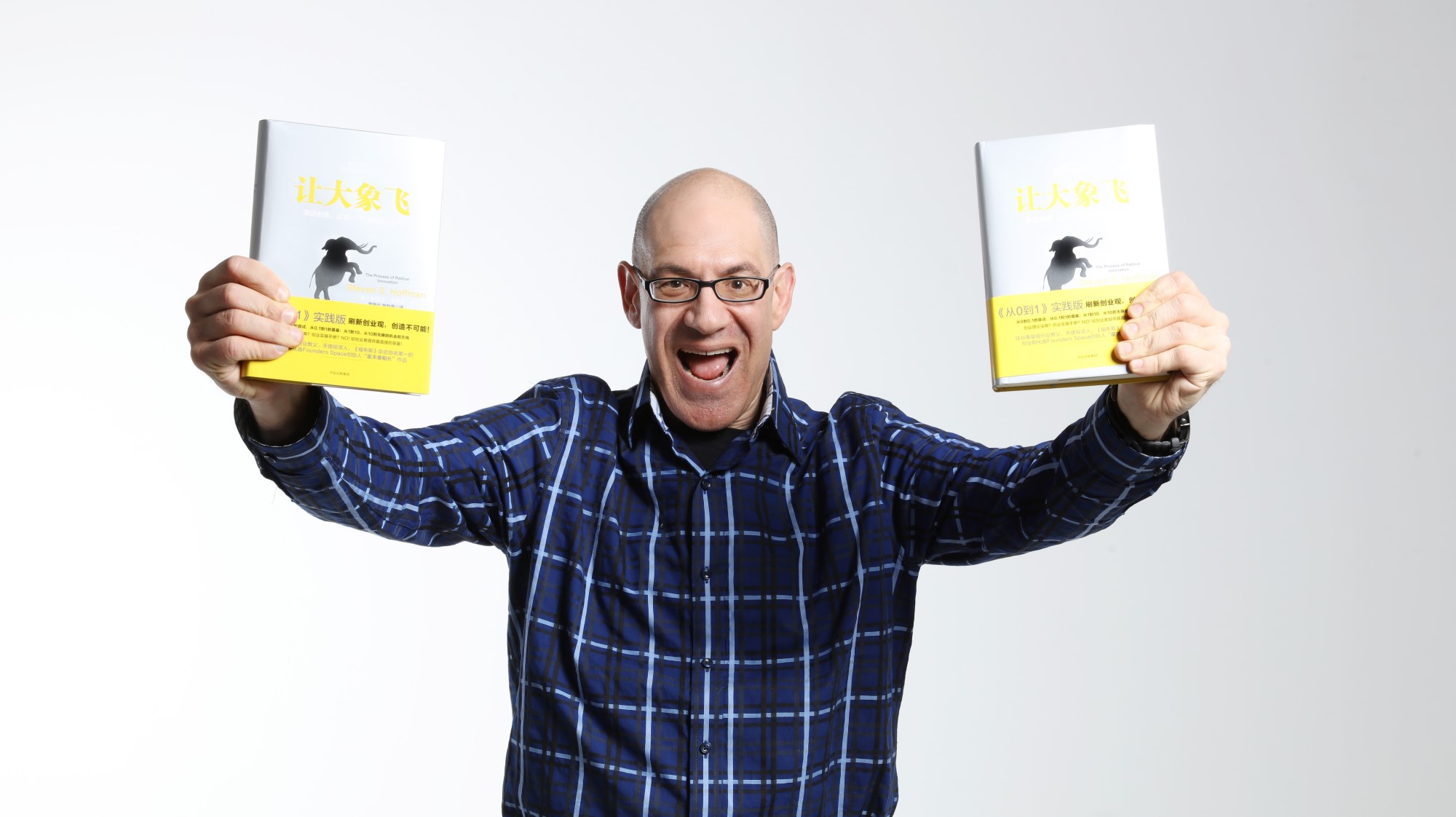
Q7: Japanese entrepreneur Kazuo Inamori has put forward a formula: life/work results = mode of thinking * enthusiasm * ability. He values the importance of a person’s mode of thinking. If you are asked to make such a summary of life, how would you summarize it?
Balance is key. If you go all the way back to the Greeks, they taught that moderation in everything is the healthiest way to approach life. I try to live by this rule. Too much of anything, even a good thing, can negatively impact your wellbeing. I try to maintain a healthy balance between the time I invest in my family, work, and own personal interests.
Q8: Earlier Chinese society had a very deep discussion about the “996 “working system of Internet companies. In the view of practitioners, overtime working can increase the income and promote their positions, but at the same time it means sacrificing the time of rest, such as reading, fitness and love; in the view of some successful people, the overtime working is because they love the career they choose, they make extraordinary efforts to achieve “success” that ordinary people don’t understand. What do you think of the “996” working system?
I think 996 is fundamentally unhealthy. I’m not against hard work. I admire people like Jack Ma. He’s amazing. I’m a hard worker myself. I work more than 996 much of the time. But it’s my choice. That’s what I’m choosing to do with my free time and my life. My problem is that most people are no Jack Ma, and we shouldn’t expect them to be. All of us are different. We each have our own strengths and weaknesses. Many people have aging parents or children with special needs to take care of. How can these people do this and still work at job if they are expected to work 996 or more? What it ends up doing is causing huge amounts of stress, and this stress can lead to health issues and depression. It also affects the work, leading to poor decision making and interpersonal issues. There’s a cost to be paid for everything, and forcing everyone into a single mold, regardless of their life circumstances isn’t a good idea. Companies like Alibaba will be profitable even without 996. Look at Google, Microsoft, Airbnb, and most of the tech companies in Silicon Valley. They don’t enforce 996. They allow people to choose how much they work, and they are extremely profitable. They are also very innovative. My point is that 996 doesn’t necessarily produce better results. They did a study on productivity, and they found that countries, like South Korea, which work more hours than anyone else, were some of the least productive. People are in the office long hours, but they aren’t necessarily producing anything of value. It’s not how long you work, it’s what you do on the job that counts. Let’s stop measuring hours and start focusing on results. That will serve us much better in the long run.
Q9: As the world enters a competitive era dominated by 5G telecommunication technology , the U.S. government is also developing plans to accelerate the development of 5G solutions in the United States in an attempt to defeat the growing 5G industry in China. what do you think of the 5G telecommunication technology?
5G has the power to transform the world in a very positive way. It not only allows for much higher bandwidth, but it reduces latency. This is key when designing complex mobile systems, like those for managing autonomous cars and robots. Another key benefit is that the devices can consume much less power. If you think of a world with billions of smart devices and sensors on the street, the limiting factor has been power. How do you get energy to all these devices? 5G will help solve this. Lastly, 5G allows for many more devices to function simultaneously on the network. With IoT devices set to increase exponentially, this is a critical factor. All this combined will have a huge impact.
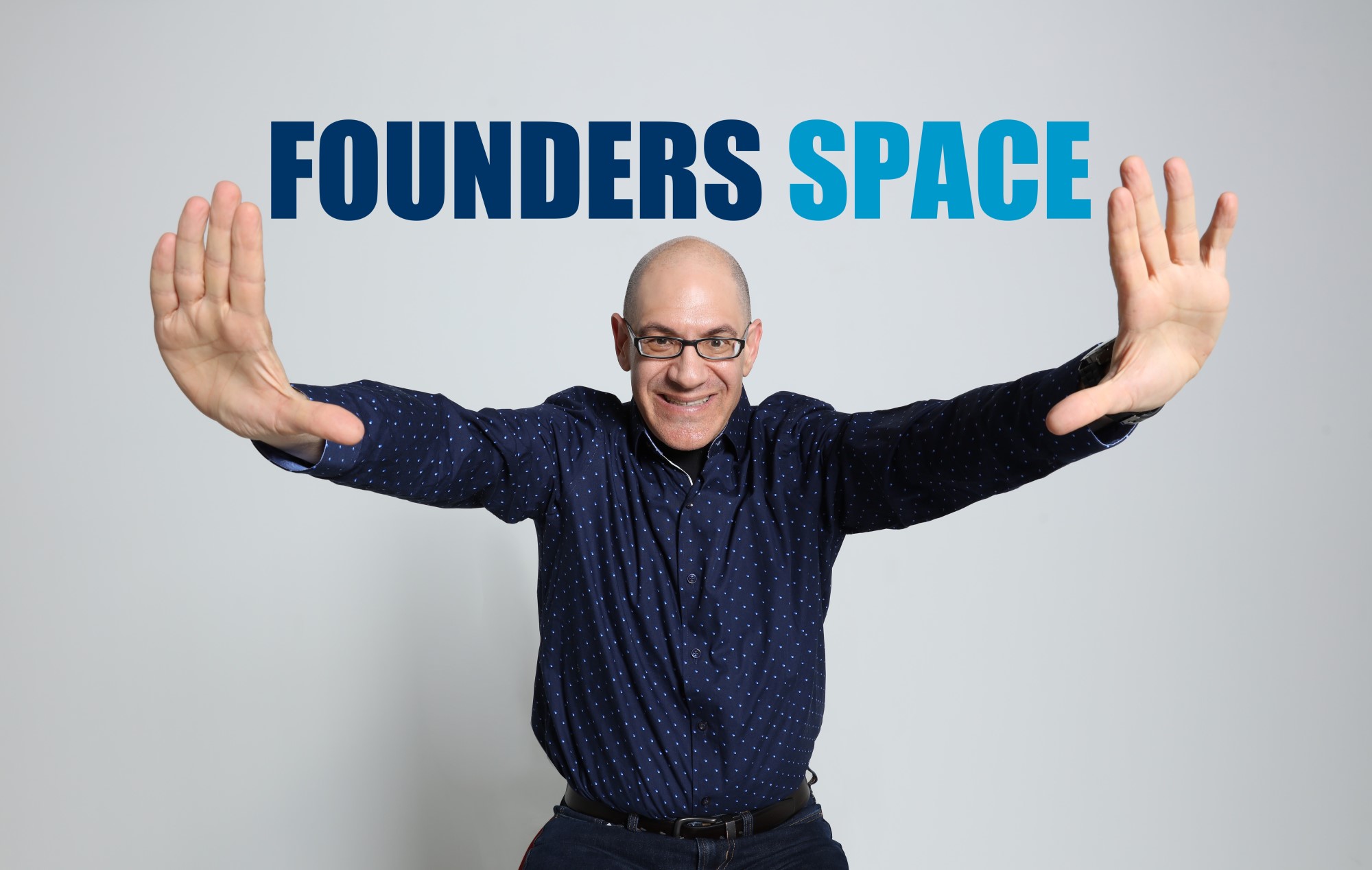
Q10: Chinese women will encounter many problems in their personal development. When a woman concentrates on her career development and achieves success in her career, someone will come up and ask, “How do you balance the relationship between family and career?” When a woman concentrates on her career development and neglects marriage, she will be called “old and leftover girl”. What do you think of women’s development in the workplace today?
I think it’s terrible to call anyone a “leftover” person. Maybe it’s the translation into English, but it sounds so degrading, like this person has no value. Why don’t we call guys that don’t get married by 30 “leftover” boys? Honestly, women shouldn’t feel pressured to marry by a certain age. They should be allowed to choose when they feel ready to marry. I know a lot of women who have married someone they really didn’t love because of family and social pressure. These marriages often turn into nightmares. To me, the only solution is to remove the stigmatism from being unmarried. Women need to have a freedom to choose their own path through life and decide when and to whom they want to marry, without too much outside pressure. Life is complex, and often people need to adapt to their particular situations. I’m not saying women shouldn’t get married or that women should work all the time, but we should let women decide for themselves without shaming them into a certain behavior.


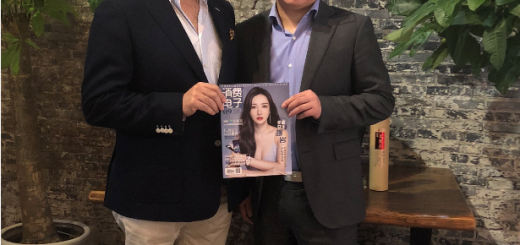




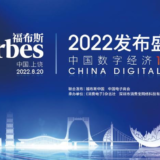


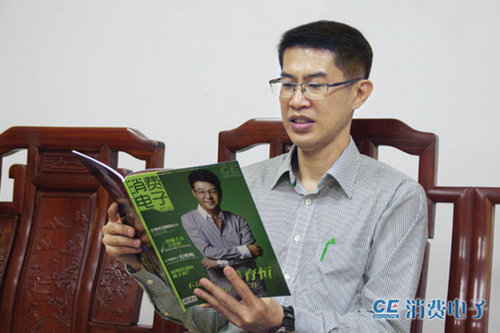




I was skeptical, but after recently of trading, the great support convinced me.
This is the fitting weblog for anybody who wants to find out about this topic. You notice so much its nearly onerous to argue with you (not that I truly would want?HaHa). You positively put a new spin on a subject thats been written about for years. Great stuff, simply nice!
Hello to every one, it’s in fact a fastidious for me to visit this web site, it consists of helpful Information.
Your blog is truly becoming a go-to resource.
I’ve been exploring for a little bit for any high quality articles or blog posts in this sort of area . Exploring in Yahoo I ultimately stumbled upon this web site. Reading this information So i am happy to exhibit that I’ve an incredibly good uncanny feeling I came upon exactly what I needed. I so much no doubt will make sure to do not put out of your mind this site and give it a look on a relentless basis.
Wow, this post is fastidious, my sister is analyzing these things, therefore I am going to inform her.
Keep on working, great job!